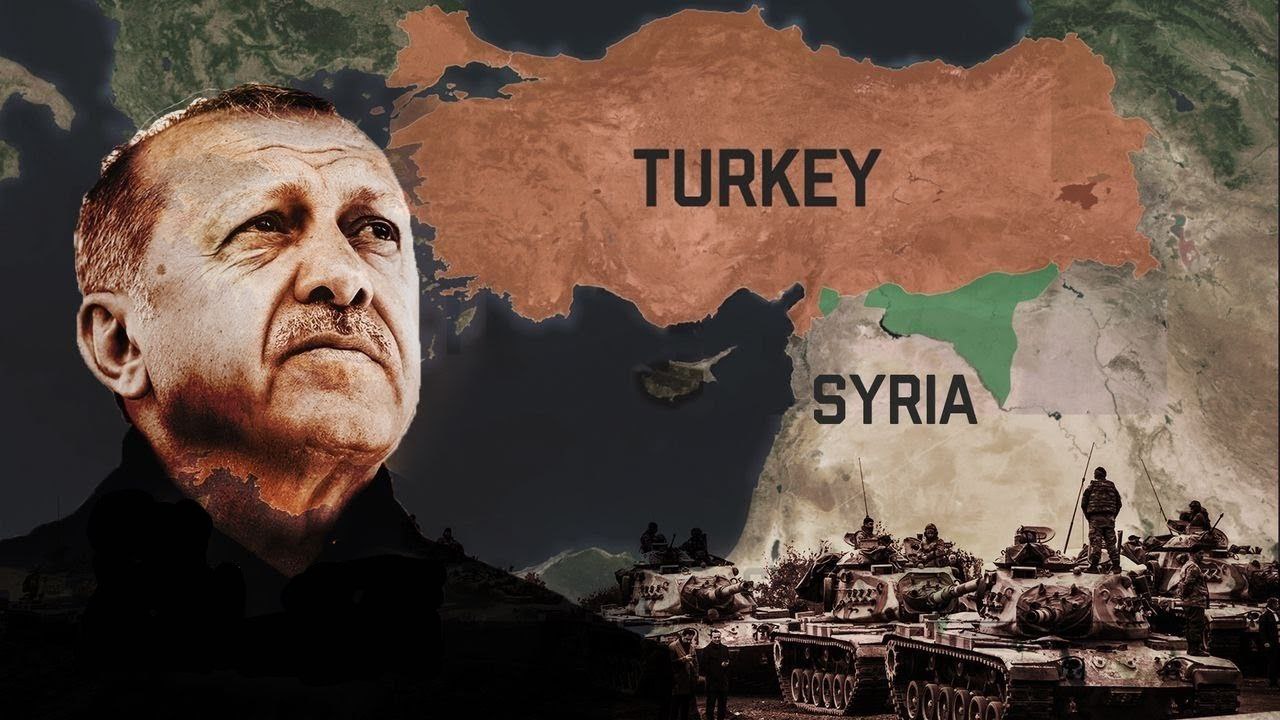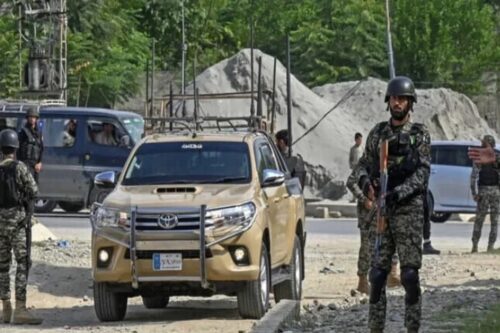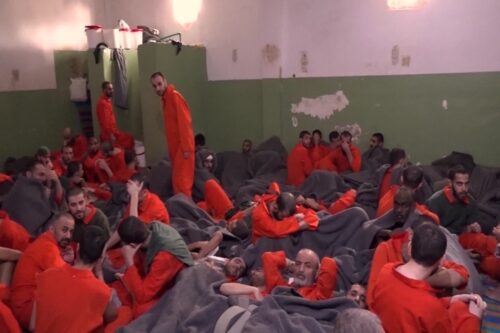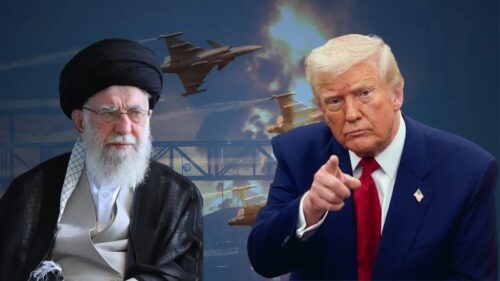
Turkey’s geopolitical role in the Syrian conflict
Pakagits has published Harut Artin Arakelyan’s article on Turkey’s actions in Syria and their significance.
Turkey’s increasing involvement in the Syrian conflict is a mixture of historical ambitions, immediate security concerns, and changes in global alliances. The actions of Turkish President Recep Tayyip Erdoğan’s administration reflect Turkey’s aspirations to redefine its influence in the Middle East while simultaneously facing internal and external pressures.
Turkey’s strategic ambitions
Turkey has a unique geographical and political position, serving as a bridge between the East and the West. This duality has shaped its complex role in the Syrian conflict. Ankara’s strategy represents a mixture of security-based objectives, such as preventing Kurdish autonomy near its borders, and broader political ambitions, such as establishing itself as a dominant regional power.
Historical context and neo-Ottomanism
Modern Turkey’s foreign policy is based on Ottoman heritage, where Erdoğan references historical events to justify the increase in military and political interventions. This approach, known as neo-Ottomanism, aims to restore Turkey’s influence in regions it once governed, including some parts of Syria.
The key driving forces behind Turkey’s military involvement
1. Security threats from Kurdish groups
Turkey perceives Kurdish militias, particularly the YPG, as a direct threat because of their connection to the PKK, which has been waging insurgency within Turkey for decades. Ankara’s military operations, such as Operation Peace Spring, aim to neutralize these groups and create buffer zones along the border.
2. Creation of safe zones for refugees
By accepting nearly four million Syrian refugees, Turkey faces significant socio-economic challenges. The safe zones in northern Syria aim to facilitate the repatriation of refugees, alleviating this burden while simultaneously expanding Turkish influence in Syrian territories.
3. Control of strategic points
Turkey’s concentration in regions such as Aleppo and Idlib underscores its strategy to control territories of economic and logistical importance. The M4 and M5 highways, crucial for Syria’s economy, are key battlegrounds where Turkey disrupts the advances of Assad’s regime to maintain leverage.
Challenges in international relations
Turkey-NATO tensions
As a NATO member, Turkey’s actions, including the purchase of Russian S-400 missile systems, have strained its relations with Western allies. This disagreement over strategic priorities has sparked debates within NATO regarding Turkey’s loyalty to the alliance.
Russia-Turkey dynamics
Turkey and Russia maintain complex relations characterized by both cooperation and competition. Joint efforts in ceasefire agreements, such as in Idlib, coexist with direct confrontations over territorial and political interests. Their economic ties, such as TurkStream gas pipeline, further complicate this dynamic.
The wider implications of Turkey’s role
1. Regional power shifts
Turkey’s self-confidence has disrupted the traditional balance of power in the Middle East, challenging actors such as Assad’s regime and Kurdish groups, while simultaneously creating new rivalries and partnerships.
2. Domestic and international perceptions
Erdoğan’s policy, while widespread among domestic nationalists, has faced criticism abroad. Claims of human rights violations and unilateral operations in Syria have created tension with Western powers and human rights organizations.
Main predictions for Turkey’s actions in Syria
1. Escalation in Idlib
Idlib continues to be a critical hotspot with ongoing tensions between Turkish forces, Syrian government troops, and various rebel groups.
Possible scenarios
– Turkey may increase its military presence to counter the advances of the Syrian government, especially if there is support from Russia.
– The increase in Turkey’s involvement could lead to direct confrontation with Syrian or Russian forces, potentially escalating into broader conflicts.
2. Continuation of the creation of safe zones
– Erdoğan is likely to continue moving forward with the creation and expansion of “safe zones” in northern Syria. These zones serve dual purposes:
– Moving refugees from Turkey and easing internal socio-economic tensions;
– Strengthening Turkish influence in Syria by economically and administratively integrating the regions into Turkey.
Challenges
– The resistance of Kurdish forces and the response of international human rights organizations;
– Political opposition within Turkey if the return of refugees is halted.
3. Changes in alliances and increase in unilateral operations
Turkey may begin to act unilaterally, diverging from NATO’s unified strategy.
Possible results
– Deepening ties with Russia to gain strategic leverage in Syria despite existing tensions;
– Potential alienation from Western allies, particularly the U.S., if Turkey continues conflicts over the United States’ Kurdish policy.
4. Economic and internal pressure-driven political strategy
– Turkey’s fragile economy and the need to maintain Erdoğan’s domestic support may significantly influence future decisions.
– Rising nationalism could fuel aggressive policies in Syria to win public support.
– Economic dependence on Russia (e.g., importing energy resources) may limit Turkey’s military actions so that they will align with Russian interests.
Impact on regional stability
1. The continuation of the partitioning of Syria
– Turkey’s interventions contribute to the de facto division of Syria, as different regions are under the control of Turkish, Kurdish, or Syrian government forces.
– This fragmentation complicates peace negotiations and prolongs the conflict, creating instability along Turkey’s borders.
2. Globally tense relations
– Turkey’s diversion from NATO’s priorities may weaken the alliance’s unity, affecting its broader capacity to address Middle Eastern conflicts.
– U.S.-Turkey relations, already strained due to the Syrian issue and the S-400 systems, could worsen further if contradictory strategies continue.
3. Humanitarian consequences
– Refugees in safe zones may face uncertain living conditions due to the lack of international oversight and ongoing violence.
– The civilians of Idlib and other disputed areas are likely to bear the brunt of any military escalations.
Long-term results: Success or dead end?
1. Strategic achievements
If Turkey successfully consolidates control over buffer zones and safe areas, it could emerge as a regional dominant power with greater leverage over Syrian peace processes.
2. Prolonged conflict
The ongoing clashes in Idlib and the unresolved tensions with the Kurds could trap Turkey in a protracted military and political quagmire, depleting resources and straining internal stability.
3. Erosion of alliances
Unilateral actions could increasingly isolate Turkey on the global stage, forcing it to rely on an unpredictable partnership with Russia and other regional actors.
Conclusion
Turkey’s future in Syria depends on its ability to balance immediate security concerns with broader regional ambitions. The interplay of internal challenges, Kurdish opposition, and shifting alliances will dictate its role as either a stabilizing force or a disruptive player. While Erdoğan’s strategies offer short-term solutions, long-term risks, such as protracted conflicts, strained alliances, and internal unrest, could undermine its goals.


